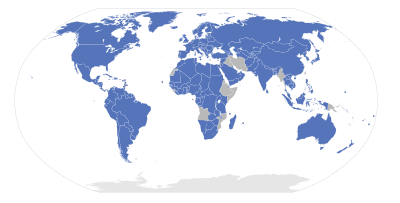Working globally
| Course dashboard for #OCL4Ed | ||
|---|---|---|
| Copyright: Your educational right to copy | Introduction | Video signpost | History | Working globally | Scope | Ownership | Rights & protections | Exceptions | Transfer of rights | Case study | Case study reflection | E-Activity - Copyright MCQ | |
This unit on copyright is designed to provide a brief introduction to copyright for an international audience. The study and implementation of intellectual property rights is complex and there are many differences in the copyright laws among countries.
The answers to these questions provide useful insight into how copyright works in different countries and illustrates the purpose of international copyright agreements and treaties which aim to achieve some level of equivalent treatment of copyright.
International copyright agreements and treaties
There are a range of international agreements and arrangements which aim to harmonise copyright at an international level. These include, for example, the World Intellectual Property Organization (WIPO), the Trade-related aspects of intellectual property rights (TRIPS) and the Berne Convention. The detail of all these international agreements falls outside the scope of this introductory unit.
For the purposes of this introductory unit a cursory overview of the Berne Convention is adequate.
Berne Convention

The Berne Convention is an international agreement for governing copyright which was first accepted in 1886 in Berne, Switzerland. The intention of the Berne Convention was to promote an international system of equal treatment of copyright through minimum requirements.
The signatories of the Berne Convention agreed to a number of principles and minimum requirements for copyright. For example:
- Copyright protection is automatic and should not require any formalities.
- International works of signature countries must enjoy at least the same level of protection provided by the local national legislation.
- If the copyright term in one country is less than the copyright term in another country, protection of the work in the country with a longer duration of copyright (than the country of origin) may be denied.
- Countries may impose more restrictive conditions than the minimum requirements specified in the Berne Convention, however signatories may not implement more lenient conditions. (For this reason we advise that you consult your own country's copyright act.)